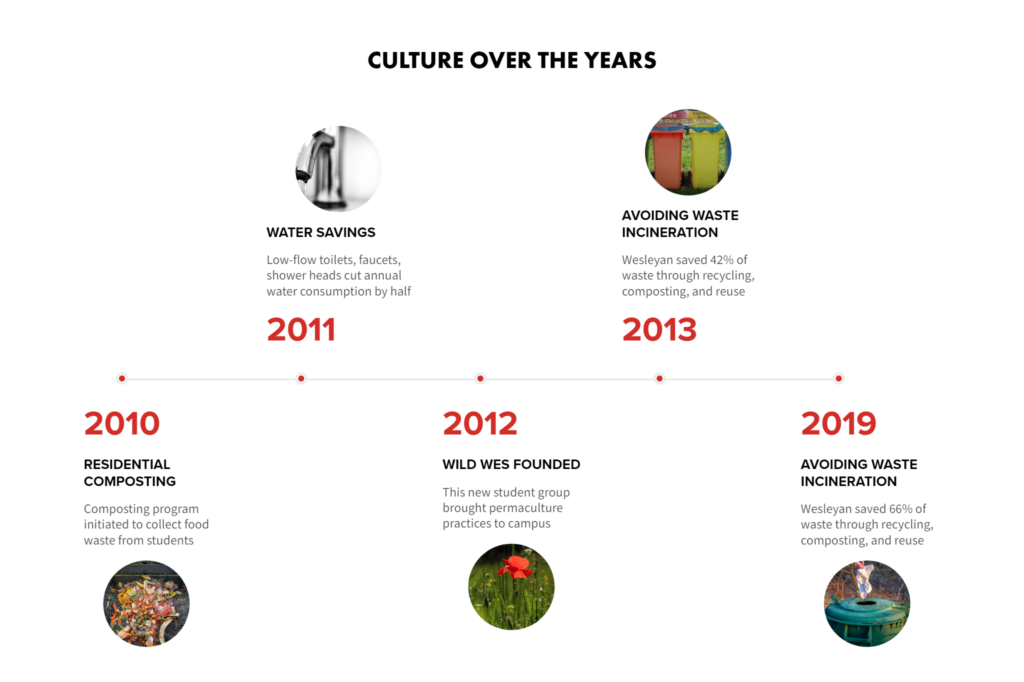A sustainable institution must change more than its carbon footprint and classroom education. Wesleyan’s environmental and social impact includes its purchases, waste practices, students’ daily actions, and its interactions with the community. By choosing intentionally to pursue individual, collective, and institutional choices that have positive environmental and social impacts, Wesleyan shall create a culture that values the future, by which we mean one that values sustainability and social justice.
Culture
Although Connecticut is not as dry as some other parts of the country, reducing water waste is part of our responsibility as environmental stewards. Wesleyan has made great strides conserving water and adding locations for filling reusable water bottles.
Wesleyan already has programs aimed at reducing dining hall food waste, pre- and post-consumer food waste composting in dining halls and student residences, and a commitment to purchasing locally and/or sustainably produced food. Still more can be done to reduce dinnerware waste, reduce the amount of discarded food, and purchase sustainable foods.
Keys to sustainable grounds management are: organic management, native trees and plantings, reduced water consumption, and increasing campus awareness of policies and practices. Wesleyan has already begun work in each of these areas, making the campus more beautiful and in harmony with the natural world.
Keys to sustainable grounds management are: organic management, native trees and plantings, reduced water consumption, and increasing campus awareness of policies and practices. Wesleyan has already begun work in each of these areas, making the campus more beautiful and in harmony with the natural world.
Sustainability is an integral part of Wesleyan’s culture, expressed through University practices as well as the individual and collective actions of students, faculty, and staff. The following objectives move Wesleyan in the direction of a sustainability-centered campus culture.
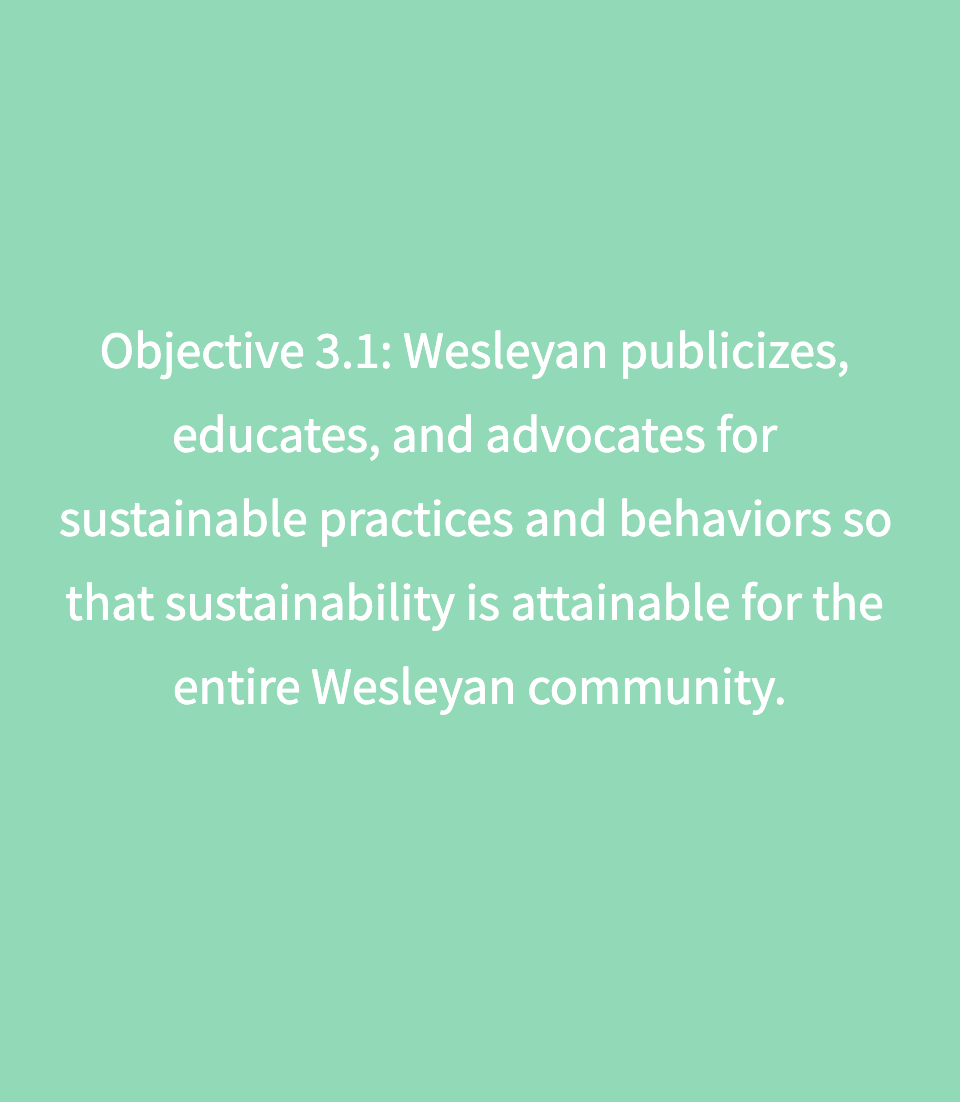
Wesleyan’s faculty, staff, and students are a community with differing education and experience regarding sustainability. White privilege and income inequality are strongly integrated with traditional access (or lack thereof) to sustainability knowledge and practices. It is therefore important that Wesleyan facilitates an even playing field of sustainability knowledge through continual education and outreach. We must also provide space for marginalized members of the Wesleyan community to share their stories about sustainability and what impact the climate crisis and environmental injustices have on their lives. Wesleyan also has the opportunity to share its education and advocacy with the Middletown community and beyond.
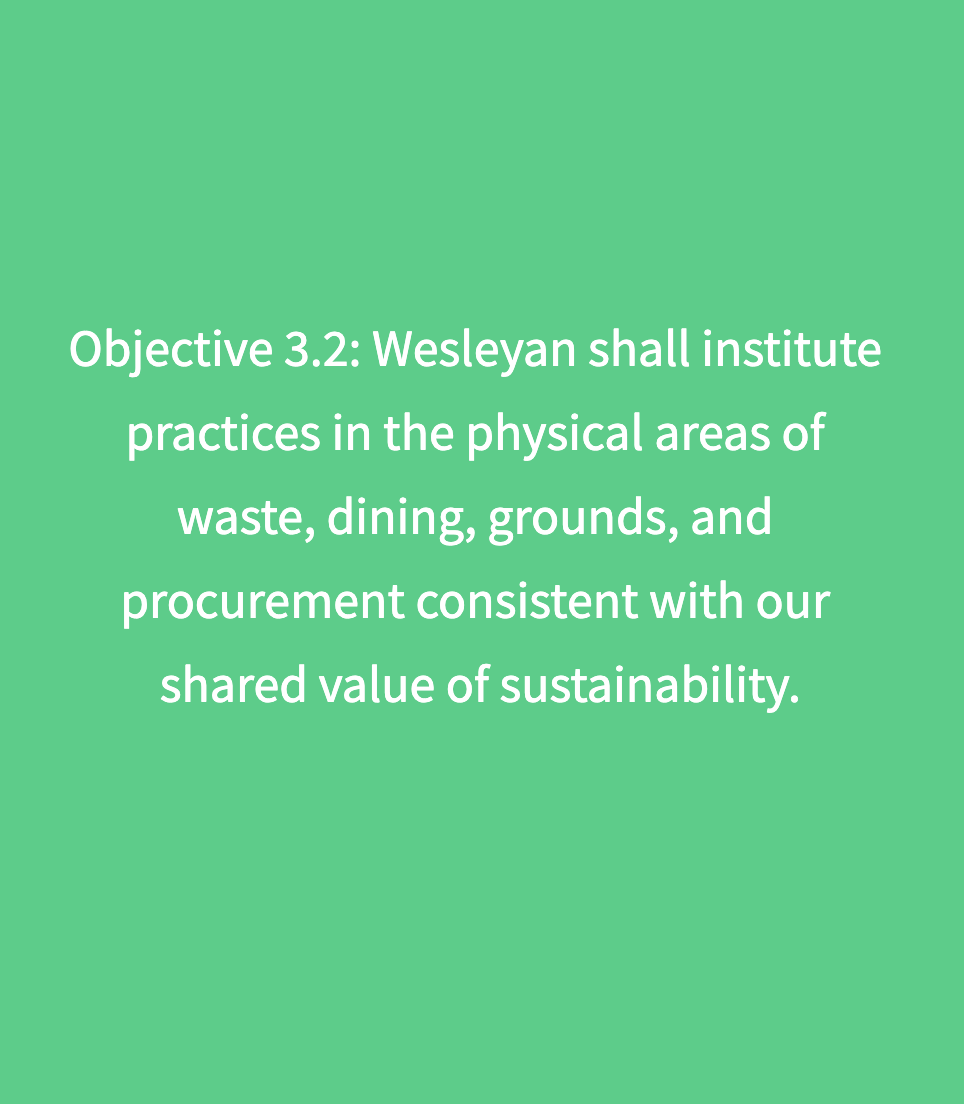
3.3.1 Waste
Wesleyan shall continue past efforts to reduce waste and increase waste diversion. Working groups shall find ways to functionally improve access to waste diversion and address waste generation across the entire campus.
3.3.2 Dining
Wesleyan shall increase the amount of food sourced locally and shall scale back purchasing from the animal agriculture industry. These actions will reduce an important component of global greenhouse gas emissions.
3.3.3 Grounds
Wesleyan maintains extensive monoculture with lawns. The increase of perennial, low-mow, and no-mow plantings shall reduce the resource inputs needed to maintain lawns, as well as enhance biodiversity in the campus ecosystem.
3.3.4 Procurement
Wesleyan shall increase the transparency and sustainability of product sourcing (merchandise, office supplies, etc.). Working groups shall establish sustainable purchasing guidelines, baselines, and goals that will include environmental and social components.
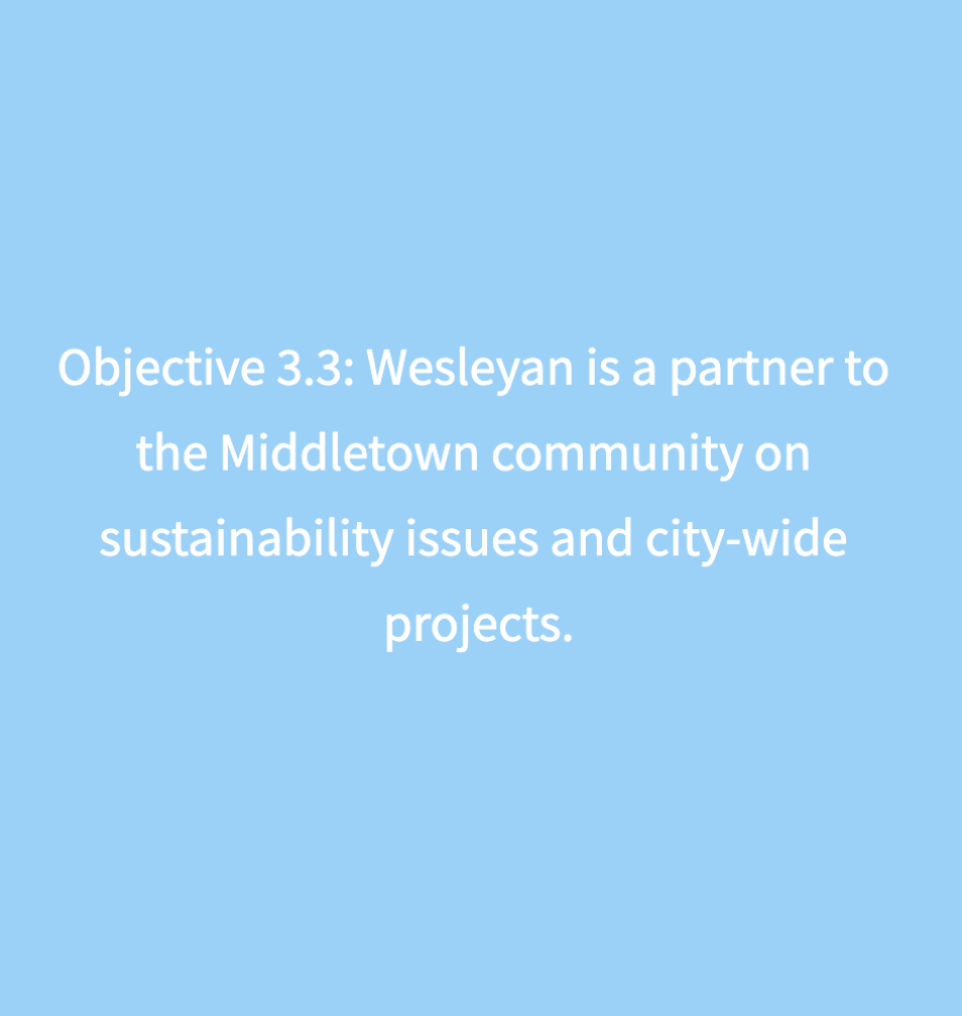
The Wesleyan and Middletown communities should collaborate to reach collective sustainability and environmental justice goals, building a resilient community. Wesleyan shall provide physical and intellectual resources to support sustainability for local government, nonprofits, schools, advocacy groups, and individuals across the community. Some of the groundwork for this partnership has been laid through service learning courses, student groups working in the community, and active volunteer programs, as well as other programs offered by the Jewett Center for Community Partnerships. There is much work to be done, and many as-yet-untapped opportunities for Wesleyan to be a support system and partner for Middletown, one that is mutually beneficial, genuine, and long-lasting.
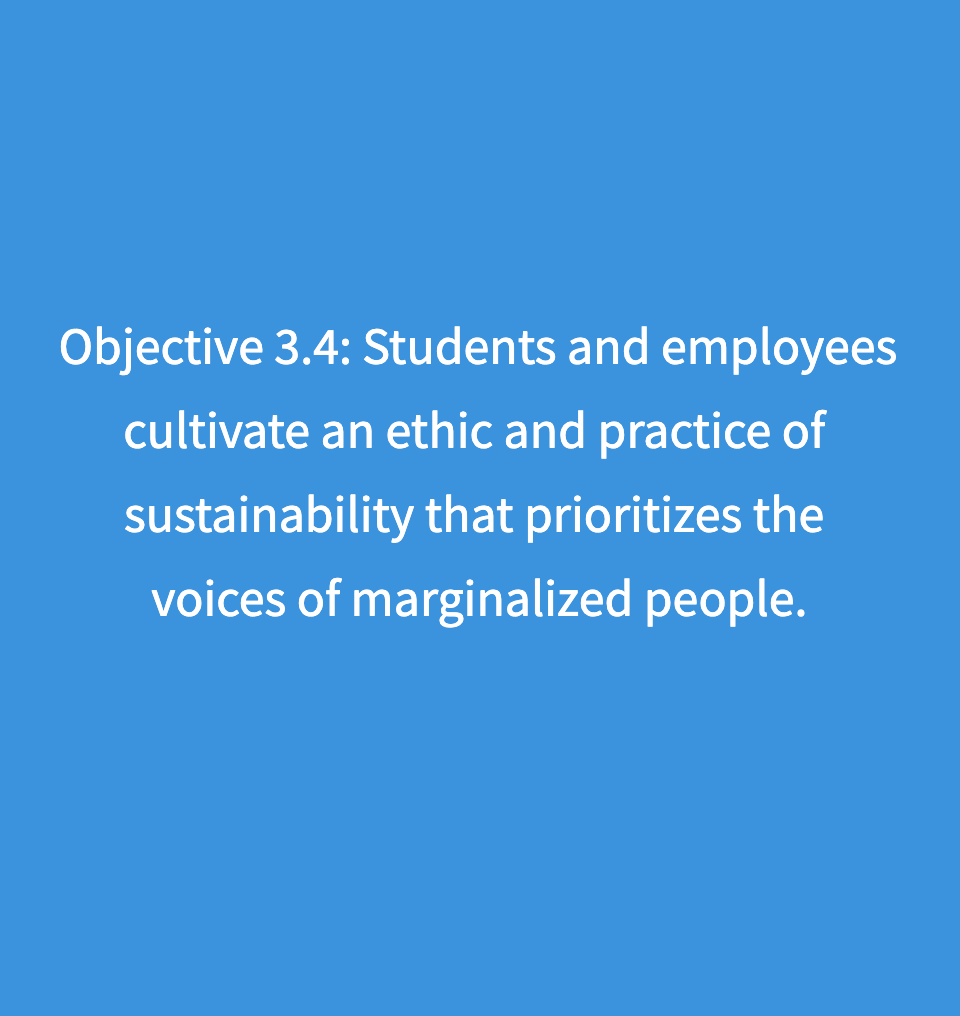
Changing the behaviors and mindsets of students, faculty, and staff allows the impact of sustainability to go beyond the Wesleyan and Middletown community. Wesleyan shall work to expand students’ civic engagement on sustainability in the context of equity and justice, moving beyond individual actions and towards collective ones. Wesleyan’s employees and students have the potential to introduce sustainability and environmental justice into their workplaces, communities, and through civic engagement. By instilling sustainability as a lifelong value of our interregional, international community, Wesleyan will thus expand its sustainable impact globally.
